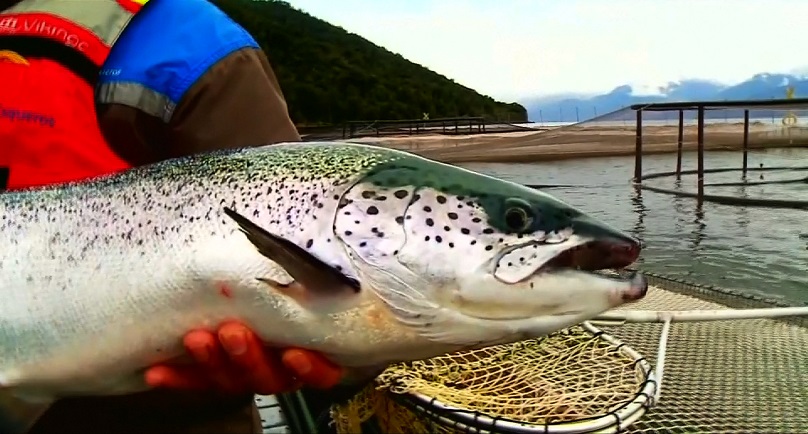By Lorraine Gabina – EMTV International
Chile, the world’s second largest salmon producer after Norway, has suffered massive losses of fish due to a recent algal growth; threatening jobs and raising new concerns over El Nino, climate change and general health conditions.
Marine Harvest, a Norway-based company engaged in seafood production and marketing, announced on its website on March 3 that 2.7 million out of 2.9 million salmon have died due to an algal bloom.
The company added that the remaining fish are most likely also lost at three of their seawater sit’s in the southern Chilean region of Los Lagos.
Other fisheries have joined in the alert, which has led the Chilean Navy and Chile’s National Fishery and Aquaculture Service to further inspect the phenomenon.
Director of Chile’s National Fishery and Aquaculture Service, Eduardo Aguilera, said “It’s very important what’s going on. We don’t have the capacity; we don’t have the technology to be able to control the situation we are dealing with now.
“The only thing we can do as a state organisation is to provide facilities to companies, to carry out the necessary procedures to be able to rescue production.”
Meanwhile, Jorge Weil, an Academic from Lagos University explained “The main factor is pollution that exists below the cages where these fish reproduce.
“There is a viral environment there, a bacterial environment and now with the phenomenon of El Niño and the rising temperatures, the algae that is superficially deposited, prevents photosynthesis in the deepest regions.
“To have this situation on the sea bed, under the cage, when there is no photosynthesis, the salmon begin to choke, suffocate and die.”
Reports by the National Oceanic and Atmospheric Administration say contaminated seafood can cause amnesic shellfish poisoning in humans, a serious illness that can lead to short-term memory loss, brain damage and even death.
Local media reports say nine fisheries have been affected by this red tide, in 21 areas around the Andean nation, placing some 13,000 jobs in jeopardy.
Researchers are yet to determine whether longer-term global climate change from rising levels of heat-trapping greenhouse gas emissions are playing a role here.


